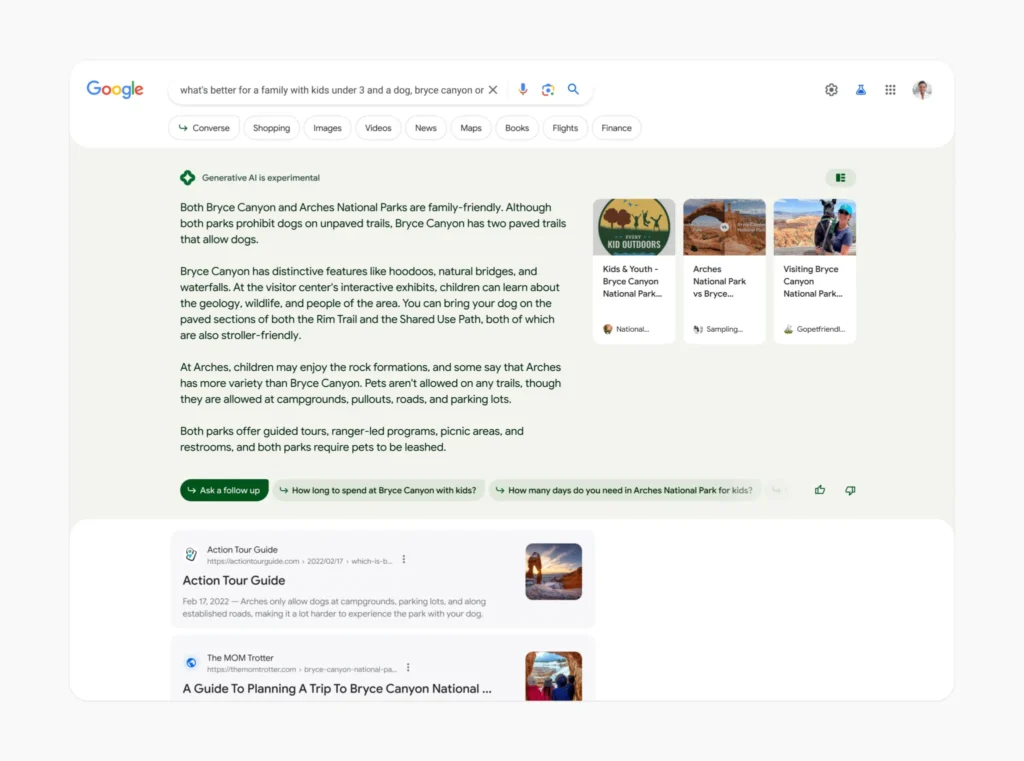Google & Digital Marketing Updates of July 2024
While Google’s updating of July 2024 underlines the company’s ongoing effort to prioritize user experience, high-quality content, and adapt to changing digital trends. Connecting SEO strategies to said key updates focusing upon various performance indexes like Core Web Vitals, mobile-first indexing, content quality, UX design, security, and local SEO helps marketers manage this competitive digital landscape that assures continuity in rank improvements across the various search engines and the brand’s performance online.
Not only does it ensure compliance with the latest Google algorithms, but it also enhances overall website performance and user engagement to secure success in the competitive digital marketplace even in 2024 and beyond.

Google & Digital Marketing Updates: July 2024
Google released a prominent update in July 2024 aimed at heightening user experience and refining relevance in search results. This is due to emphasis on several aspects by this update that should be prioritized by digital marketers and website owners in order to keep their rankings or improve upon them:
1. Core Web Vitals Emphasis
Google continues to prioritize it-and I say it because the Core Web Vitals contain several indices. Speed of load, interactivity, and visual stability. Sites that excel in these functions are given higher rankings to maintain a more fluid and engaging user experience. Marketers should also work toward reducing render-blocking scripts, improving page speed to enhance user satisfaction and site performance, and ensuring content stability.
2. Mobile-First Indexing
Since a significant part of the internet traffic comes from mobile devices, Google has reiterated its commitment to mobile-first indexing. Websites that render properly and deliver good user experience on mobile devices receive higher rankings in the search results. Marketers must optimize for mobile-friendliness and usability with fast loading speeds for mobile users to optimize overall visibility for the site.
3. Content Quality and Relevance
High-quality, relevant content is still the cornerstone of SEO success. The update released by Google has put greater weight behind content demonstrating E-A-T-expertise, authority, and trustworthiness. Sites that continue to publish original and well-researched content in tune with user intent will continuously offer improved rankings. Content marketers are best suited to developing comprehensive strategies in content that would address target audience needs with valuable insights and solutions.

4. Algorithm Refinements for Accuracy
As Google continues fine-tuning its algorithm to match the searcher’s intention and yield more accurate results, there has come into being semantic search, which looks to create order in the overwhelming chaos of content by considering contextual relevance of results ahead of direct cookie-cutter keyword matches. The main goal of the marketers now is to optimize content for semantic relevance and user engagement (such as time spent on the site and click-through rates), alignment with the evolving Google algorithm, and contextual comprehension.
5. User Experience as a Ranking Factor
Local SEO is critical for firms that serve specific geographic locations. Websites that prioritize UX elements such as easy navigation, clear calls-to-action, and minimal intrusive elements are favored. Google aims to reward sites that provide a positive browsing experience, encouraging marketers to optimize UX design alongside technical SEO considerations.

6. Security and privacy
Ensuring website security and protecting user privacy are increasingly important factors in SEO. Google favors sites that use HTTPS encryption, adhere to data protection regulations, and prioritize user data security. Marketers should implement robust security measures to build trust with visitors and improve site credibility, potentially boosting engagement and conversions.

7. Local SEO and Personalization
Local SEO is essential for organizations that target certain geographic locations. Google tailors search results based on user location and preferences, presenting opportunities for businesses to optimize for local search intent. Marketers should focus on optimizing Google My Business profiles, generating local citations, and enhancing local content relevance to improve visibility in local search results.

8. Decrease in AI Overview Frequency in SERPs
Recent studies indicate a decline in AI overviews appearing in Google search results, now appearing in only 7-9% of searches compared to previous levels of 17–64%. These overviews typically feature links to top organic results and include ads, with reduced visibility for local keywords and content from platforms like Reddit.

9. Updates on Paid Media Platforms
Google Ads introduces significant updates aimed at enhancing attribution accuracy and keyword targeting:
- GA4 Attribution Fix: Corrects attribution modeling to accurately reflect Google Ads conversions, resulting in a median increase of +14% conversions across various accounts.
- Enhanced Keyword Matching: Now automatically handles misspellings for negative keywords and refines broad match targeting with brand inclusions and exclusions.
LinkedIn expands ad placement options with in-stream video ads across premium publisher content, including Bloomberg and The Wall Street Journal. This expansion aims to leverage video ad trends and enhance engagement through AI-supported creative tools.







